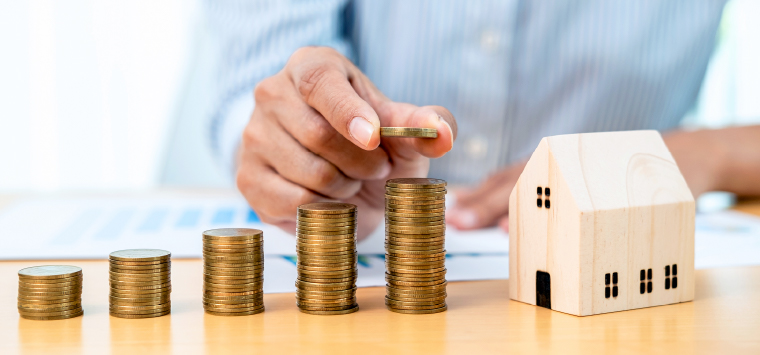Rising property taxes, combined with increasing home prices, rising insurance, and interest rates, are making housing in Texas increasingly unaffordable for both homeowners and renters. These higher taxes can reduce the appeal of homeownership, potentially discouraging prospective buyers and pushing current homeowners to search for more affordable options.

As property values increase, so do property tax bills, even if tax rates remain the same. This results in higher monthly expenses for homeowners, making it more difficult to afford housing. For individuals with fixed incomes or limited resources, the financial strain from rising property taxes can be especially challenging
Texas Property Tax Increase Impacts
Texas does not have a state income tax, so it relies heavily on property taxes to fund public schools and other local services. As a result, property taxes make up a significant portion of the overall cost of living in the state.
The rapid increase in property taxes, home prices, and interest rates has created a housing affordability crisis in Texas, leaving many households financially burdened. As the state’s population continues to grow rapidly, development struggles to keep pace, resulting in a housing shortage. This shortage drives up home prices and rents, worsening the affordability challenge. Additionally, the demand for expanded infrastructure and services to support the growing population requires increased funding through property taxes, further intensifying the strain on residents.
6 Ways Property Taxes Can Significantly Impact Housing Affordability
#1 Higer Property Taxes Increases Monthly Costs
Rising property taxes can lead to higher monthly payments for homeowners, making homeownership less affordable. For those with a mortgage, property taxes are typically included in their monthly escrow payments. When tax rates increase, the overall monthly cost goes up, potentially straining a household’s budget.
#2 Impact on Renters
Although property taxes primarily affect homeowners, they can also have an indirect impact on renters. When property taxes increase, landlords often adjust rental prices to account for the higher costs. In areas with high property taxes, this cost is typically passed on to renters through higher rents. While renters don’t pay property taxes directly, they still bear the burden through increased rental rates, making housing less affordable overall.
#3 High Home Price Valuations
In areas with high property taxes, the overall cost of ownership often influences home prices. Over time, these high taxes can either reduce home values or slow their rate of appreciation, as buyers may hesitate to pay elevated taxes in addition to the property’s price. Consequently, housing affordability is becoming more problematic, especially in areas with high taxes.
#4 Reduced Purchasing Options for Homebuyers
When buyers take ongoing property taxes into account, it can lower the amount they can afford to spend on a home. Lenders typically consider property taxes when approving mortgages, and higher taxes can result in buyers qualifying for smaller loans, narrowing their home purchase options.
#5 Rising Values Can Lead to Higher Insurance
If your home value goes up, it is possible that insurance companies may follow suit with a hike in your premiums. Typically, insurance costs are tied to replacement costs so just because your assessment goes up, does not automatically signal you will see a jump in your homeowners insurance; however, replacement cost is affected by inflation. The same inflation that drives up the price of all goods and services, including home prices will cause the replacement cost for any potential insurance claims to be higher, leading to an increase in your insurance costs.
#6 Displacement of Low-Income and Fixed-Income Residents
As property taxes rise, homeowners with lower or fixed incomes may find it increasingly difficult to afford to stay in their homes. The growing tax burden can make property maintenance unaffordable, potentially leading to displacement. In some cases, these homeowners may be forced to sell their homes if they can no longer keep up with the rising tax bills.
What Can Property Owners Expect?
Property taxes can worsen the issue of housing affordability by raising ownership costs, driving up rents, and reducing purchasing options. In areas with high property taxes, both buyers and renters face increased financial burdens. To tackle these issues, lawmakers must find a way to keep housing affordable for residents while also funding local services through property taxes.
Property Tax Relief Efforts
In recent years, Texas has introduced several property tax relief measures designed to ease the financial burden on homeowners and businesses. These initiatives include increases in homestead exemptions, tax rate compression, and targeted budget allocations. However, despite these efforts, some analysts argue that property taxes have still continued to rise.
Work With O’Connor For Property Tax Relief
O’Connor provides property tax reduction services for both residential and commercial owners. Our simple and easy online enrollment only takes 2 or 3 minutes, and you’ll never have to pay a fee unless we reduce your property taxes. We take care of the costs for court, appraisals, expert witness or legal fees.
In 2024, O’Connor saved clients over $190 million collectively!
Join O’Connor and enroll in the Property Tax Protection Program™ today to save big!
How Can O’Connor Help You
If you are a Homeowner in Texas, you can benefit from O’Connor’s Property Tax Protection Program™ a risk-free program that offers the opportunity to pay less in property taxes. Joining O’Connor allows you to put the protest of exorbitant assessment values in our experts’ hands to contest on your behalf. As part of the program, our property tax specialists will prepare for and appear before the Appraisal Review Board (ARB) to fight for a reduction. They will also investigate comparable property tax cases and market sales to get you the best reduction.
